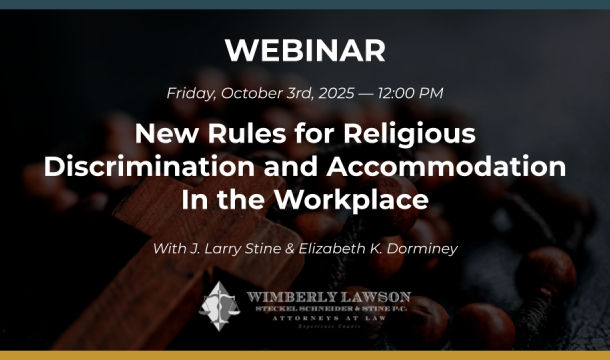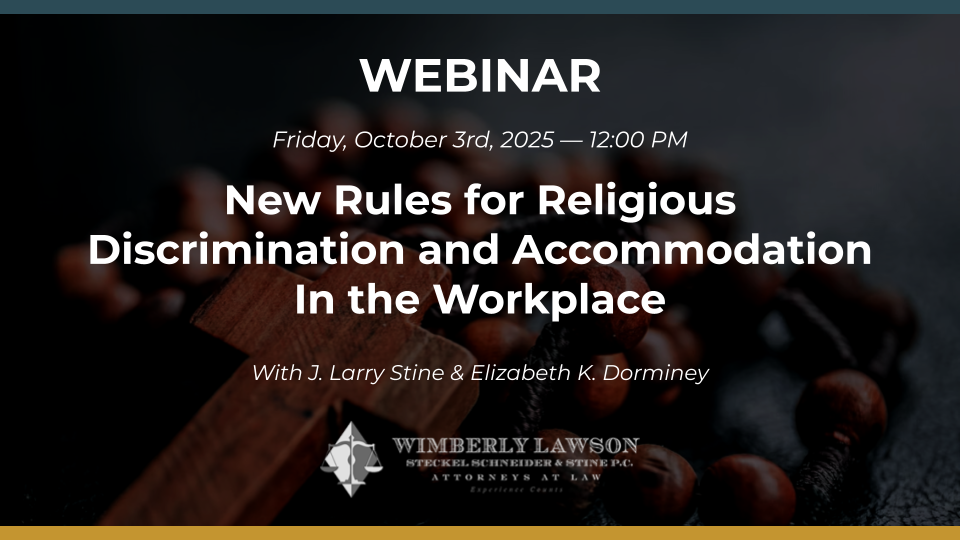Doing the Write Thing: The Value of Getting a Signed Written Statement from a Complainant in a Sexual Harassment Investigation
Our Firm recently finished defending a sexual harassment case in federal court, and the final result was a defense verdict on all counts. The case was brought by a woman who claimed she was subjected to a multitude of sexual remarks in the workplace. The company had a written sexual harassment policy and complaint procedure, and one point of contention was whether the plaintiff’s alleged reporting of inappropriate remarks to various company employees was sufficient to put the company on notice of potential harassment. When the Plaintiff finally reported the harassment to a management official listed in the Harassment Policy to receive complaints, the company conducted an investigation, disciplined the harasser, and the harassment stopped.
Looking back on the facts of the case, the Plaintiff’s attorney spent a lot of time and energy criticizing what he characterized as the failure of the company representative to take a written statement from the Plaintiff when she complained about inappropriate conduct (the management representative had taken notes and drafted a memo of the conversation with the plaintiff). The plaintiff had tried to capitalize on the absence of a signed statement by increasing the number of sexual remarks and enhancing their offensiveness as the case moved to litigation. This issue seemed to resonate less with the members of the jury than with the lawyers.
Nevertheless, in hindsight, a written statement signed by the plaintiff would have made the defense lawyer’s job easier. First, when a complainant signs a statement of complaint, whether it is written by her or by someone at the company, this document locks the complainant into a story. Once a complaint reaches the litigation, there is a temptation for a plaintiff to expand the allegations of harassment in order to avoid summary judgment and get the case in front of a jury. The existence of a signed statement makes that a lot harder to accomplish. Second, and similarly, the document sets the parameters of the investigation so that the complainant cannot claim later that the company failed to conduct a thorough investigation into all of his allegations. Third, should the complainant decide to change her story, either at a deposition or at trial, that signed statement will be invaluable for impeaching the later inconsistent testimony.
So make it a practice to ask an employee to sign a statement of complaint when he or she makes a complaint of harassment. That complaint can be written by the company representative or the complainant, but get that signature (and date)! The company representative should also sign the statement as a witness. Your legal counsel will thank you!

Kathleen J. Jennings is a former principal in the Atlanta office of Wimberly, Lawson, Steckel, Schneider, & Stine, P.C. She defends employers in employment matters, such as sexual harassment, discrimination, Wage and Hour, OSHA, restrictive covenants, and other employment litigation and provides training and counseling to employers in employment matters.
Related Content
Get Email Updates
Recent Content

Trump Nominates Appointments to NLRB and EEOC but Policy Changes Likely to Be Delayed

DOL Launches Self-Audit Programs Designed to Help Employers Improve Compliance

DOL Must Release EEO-1 Reports to the Public under Open Records Laws

Current Advice on Active-Shooter Situations

New Policy for Federal Workers and Religious Expressions

